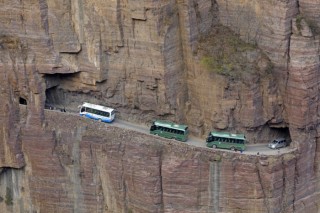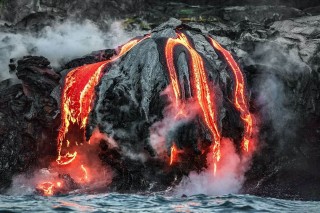Camp Like A Pro
Advertisements
Camping is a popular leisure activity that involves spending one or more nights in the wild, away from the hustle and bustle of city life. It is often associated with other outdoor activities such as hiking, fishing, and swimming, and is enjoyed by backpackers and outdoor sports enthusiasts.
Nowadays, camping has become a way of tourism that more and more people want to try. To ensure a safe and enjoyable camping experience, there are a few things to keep in mind.
Firstly, when choosing a camping spot, it's important to select a location that is close to a water source.
This not only ensures access to drinking water but also provides water for cooking and washing. However, in the deep mountains and dense forests, it's essential to be cautious of wild animals that may be drawn to the water source.
It's also important to choose a campsite that offers shelter from the elements. Ideal locations include the lee of small hills, forests or forest glades, caves, the sides of ridges and under rocks, etc. Avoid camping on the top of a mountain or in open ground during thunderstorms to avoid the risk of lightning strikes. Additionally, make sure there are no rolling stones or logs above the campsite.
Before embarking on a camping trip, it's crucial to carefully prepare the necessary equipment and food. Essential items include a tent, sleeping bag, sleeping pad, cooking utensils, water bottles, headlamps, moisture-proof pads, compression bags, etc. When selecting equipment, choose according to your own needs and experience, and don't rely too heavily on equipment.
When it comes to food, it's important to pack enough food for the duration of the trip. You can choose ready-to-eat food that is easy to carry, or prepare some ingredients for cooking on the spot. When preparing food, consider food preservation and heating to minimize food waste.
While camping, it's essential to guard against wild animals and avoid contact with dangerous animals such as bears and leopards. Pay attention to the storage of food and the disposal of garbage to avoid attracting wild animals to the campsite. If you encounter wild animals, it's important not to approach or provoke them, but to remain calm and move away gradually.
It's also crucial to protect the natural environment while camping. Do not cut down trees or litter anywhere, and keep the campsite clean and tidy. During outdoor activities, pay attention to the protection and safety of wild animals and avoid approaching or harassing them.
Additionally, it's important to keep an eye on weather conditions and adjust the camp and itinerary as needed. When encountering emergencies, respond calmly and take appropriate measures. If you are unfamiliar with wilderness survival skills and first aid, it's best to travel with someone who has experience.
Lastly, it's important to avoid getting lost while camping. Carrying a compass, map, and GPS unit can help prevent getting lost, but it's essential to know how to use these tools before embarking on a trip. Before your camping trip, make sure you learn how to read a map and use a compass, and a GPS.
Camping is a wonderful way to enjoy nature and spend time with loved ones. By keeping these tips in mind, you can ensure a safe and enjoyable camping experience.
You may like:



